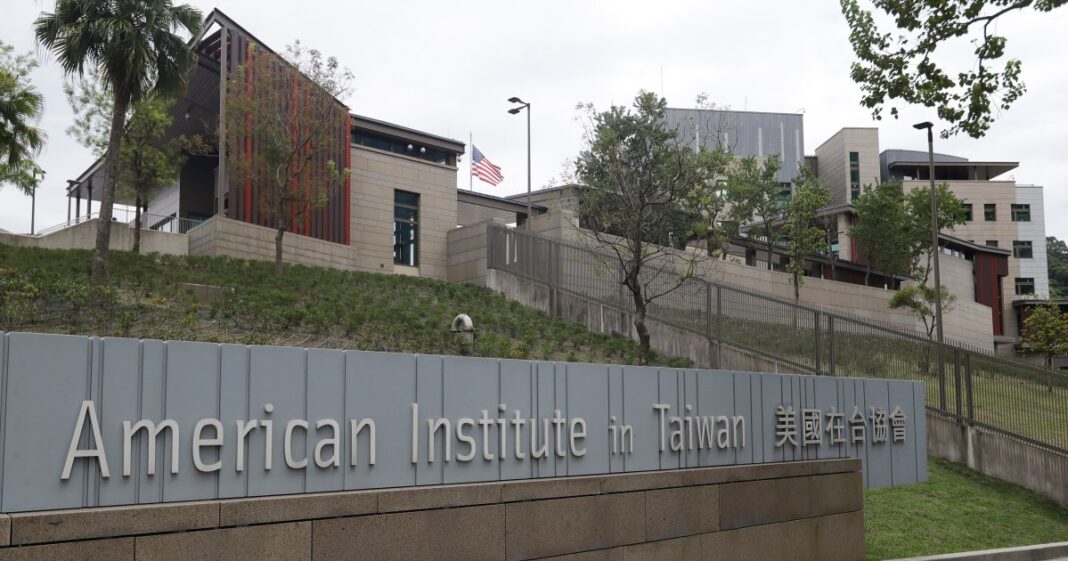The United States Department of State has dropped wording stating that Washington does not support independence for Taiwan.
The State Department latest “fact sheet” on its website about Taiwan, a self-governing island claimed by China, does not include the phrase “we do not support Taiwan independence,” which was previously featured on the page.
The fact sheet, which was updated on Thursday, also modifies a passage about Taiwan’s inclusion in international organisations, by dropping references to “where statehood is not a requirement”, and adds that Taiwan’s dispute with China should be resolved “free from coercion, in a manner acceptable to the people on both sides of the Strait”.
A sentence has also been added describing the Pentagon’s cooperation with Taiwan’s National Science and Technology Council.
The State Department described the changes to the website as “routine” following queries from the media.
“As is routine, the fact sheet was updated to inform the general public about our unofficial relationship with Taiwan,” a spokesperson told multiple media outlets.
The spokesperson was quoted as saying that the US remains committed to its “One China Policy”, which acknowledges China’s position that there is only one Chinese government, and “preserving the peace and stability of the Taiwan Strait”.
“We oppose any unilateral changes to the status quo from either side. We support cross-Strait dialogue, and we expect cross-Strait differences to be resolved by peaceful means, free from coercion, in a manner acceptable to people on both sides of the Strait,” the spokesperson said.
The American Institute in Taiwan, Washington’s de-facto embassy in Taipei, was unavailable for comment on Monday because it was closed in observance of Presidents’ Day in the US. The US State Department did not immediately respond to Al Jazeera’s queries.
China’s embassies in Washington, DC and Canberra, Australia did not immediately respond to requests for comment.
Even as the State Department downplayed the change, it was sending a message to China about Washington’s relationship with Taiwan, said Yang Kuang-shun, a co-founder of the US Taiwan Watch think tank.
“My feeling is that this is a pretty bold move, but it doesn’t mean the Trump administration will support Taiwanese independence or any kind of policy change of that nature,” Yang told Al Jazeera.
“It shows that the Trump Administration and the United States has agency or has a say in the terms of US-Taiwan and US-China relations, rather than China dictating the nature of it.”
Yang said the new wording was notable for calling out Beijing’s coercive activities towards Taiwan, such as trade sanctions, while also saying the dispute should be resolved in a “manner acceptable” to both sides.
Taiwan, whose formal name is the Republic of China, is a self-governed democracy, but is officially recognised by just a handful of countries, though it maintains unofficial ties with much of the international community, including the US.
Though Taipei considers itself to be a de facto independent state, it has never formally declared independence from Beijing, which has warned that doing so would lead to war.
Under the 1979 Taiwan Relations Act, Washington is obliged to help Taiwan defend itself, but the law does not stipulate that it would necessarily intervene militarily in the event of a Chinese invasion or blockade.
Even minor changes to how US officials refer to Taiwan are closely watched by both Beijing and Taipei.
Former US President Joe Biden stated several times that the US would “defend Taiwan” from China in the event of a conflict, but his remarks were walked back each time by the US State Department.
The State Department also briefly removed a reference to Taiwanese independence from its fact sheet in May 2022, when Biden was president, but it was quickly added back just a few weeks later, Yang said.
On Sunday, Taiwan’s Ministry of Foreign Affairs welcomed the State Department’s “positive and friendly” updated wording as a sign of the “close and friendly Taiwan-US partnership”.
Taiwanese Foreign Minister Lin Chia-lung also thanked the US for its “support and positive stance on US-Taiwan relations” and “commitment to peace and stability in the Taiwan Strait, Taiwan-US economic, trade, and technology partnership and Taiwan’s international space”.
Lin’s remarks followed a pledge by Taiwanese President Lai Ching-te on Friday to deepen Taiwanese investment in the US, in a move seen as a bid to keep US President Donald Trump from imposing further tariffs on Taiwanese goods.
Lai described Taiwan as an “indispensable partner” to help the US rebuild its high-tech manufacturing sector.







